Filter by

Genotoxicity and Carcinogenicity Testing of Pharmaceuticals
This book provides an overview of the nonclinical testing strategies that are used to asses and de-risk the genotoxicity and carcinogenicity properties of human pharmaceuticals. It includes a review of relevant ICH guidelines, numerous case studies where follow-up studies were conducted to further investigate positive findings, and practical considerations for the use of alternative and emergin…
- Edition
- -
- ISBN/ISSN
- 978-3-319-22083-3
- Collation
- X, 206
- Series Title
- -
- Call Number
- 616.9 GEN
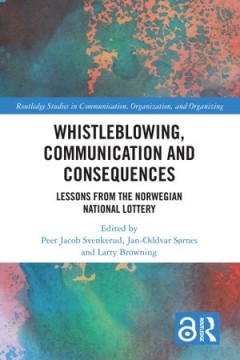
Whistleblowing, Communication and Consequences
https://openresearchlibrary.org/content/ab365bcc-0200-450b-8a0d-8ce9dd964d45
- Edition
- -
- ISBN/ISSN
- 9781000210538
- Collation
- -
- Series Title
- -
- Call Number
- 650

Genomics, Personalized Medicine and Oral Disease
The objective of this book is to catalyze the application of genomics to the diagnosis and treatment of oral diseases by comprehensively presenting focused discussions on the current state of knowledge. The first section book provides basic information about genetics, genomics and personalized medicine and the informatical methods available to apply and organize genetic data so that it has clin…
- Edition
- -
- ISBN/ISSN
- 978-3-319-17941-4
- Collation
- XIV, 408
- Series Title
- -
- Call Number
- 573.2 GEN
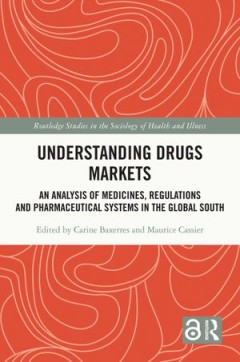
Understanding Drugs Markets : An Analysis of Medicines, Regulations and Pharm…
Drawing on anthropology, historical sociology and social-epidemiology, this multidisciplinary book investigates how pharmaceuticals are produced, distributed, prescribed, (and) consumed, and regulated in order to construct a comprehensive understanding of the issues that drive (medicine) pharmaceutical markets in the Global South today. Based on primary research conducted in Benin and Ghana,…
- Edition
- -
- ISBN/ISSN
- 9781000413106
- Collation
- -
- Series Title
- -
- Call Number
- 650
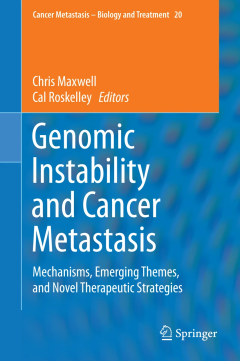
Genomic Instability and Cancer Metastasis
Metastasis is the primary cause of mortality associated with cancer, and tumor genomic heterogeneity is a likely source for the cells that support cancer progression, resistance to therapy, and disease relapse. This book connects cancer metastasis with genomic instability in a comprehensive manner. Section 1 outlines the fundamental mechanisms responsible for these cellular and tissue phenotype…
- Edition
- -
- ISBN/ISSN
- 978-3-319-12135-2
- Collation
- X, 247
- Series Title
- -
- Call Number
- 616.9 GEN
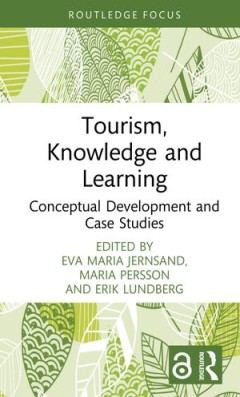
Tourism, Knowledge and Learning
This book contributes to the understanding of how tourism can be designed to provide conditions for learning. This involves learning for tourists, the tourist industry, public authorities and local communities. We explore how tourism, knowledge and learning can be used as means towards sustainable development through current, new or changed structures, concepts, activities and communication eff…
- Edition
- -
- ISBN/ISSN
- 9781000781267
- Collation
- -
- Series Title
- -
- Call Number
- 650
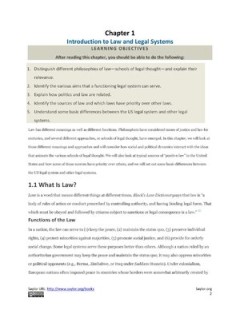
Business Law and the Legal Environment
Our goal is to provide students with a textbook that is up to date and comprehensive in its coverage of legal and regulatory issues—and organized to permit instructors to tailor the materials to their particular approach. This book engages students by relating law to everyday events with which they are already familiar (or with which they are familiarizing themselves in other business courses…
- Edition
- -
- ISBN/ISSN
- -
- Collation
- -
- Series Title
- -
- Call Number
- 650

Business Ethics
Business Ethics is designed to meet the scope and sequence requirements of the single-semester business ethics course. This title includes innovative features designed to enhance student learning, including case studies, application scenarios, and links to video interviews with executives, all of which help instill in students a sense of ethical awareness and responsibility.
- Edition
- -
- ISBN/ISSN
- 9781947172579
- Collation
- -
- Series Title
- -
- Call Number
- 650

Beyond Lean : Simulation in Practice
This book discusses how, in a practical way, to overcome the limitations of the lean approach to transforming manufacturing systems as well as related in-plant, plant-to-plant, and plant-to-customer logistics. The primary tools in this regard are algebra based mathematical models and computer-based systems simulation as well as the integration of these two. Concepts, methods and application stu…
- Edition
- -
- ISBN/ISSN
- -
- Collation
- -
- Series Title
- -
- Call Number
- 650
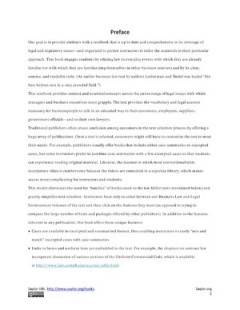
Advanced Business Law and the Legal Environment
Mayer, Warner, Siedel and Lieberman's Advanced Business Law and the Legal Environment is an up-to-date textbook with coverage of legal and regulatory issues that are more technical than the topics in the authors’ Foundations of Business Law and the Legal Environment.Appropriate for students who have already taken an introductory Legal Environment or Business Law course, the text is organized …
- Edition
- -
- ISBN/ISSN
- -
- Collation
- -
- Series Title
- -
- Call Number
- 650
 Computer Science, Information & General Works
Computer Science, Information & General Works  Philosophy & Psychology
Philosophy & Psychology  Religion
Religion  Social Sciences
Social Sciences  Language
Language  Pure Science
Pure Science  Applied Sciences
Applied Sciences  Art & Recreation
Art & Recreation  Literature
Literature  History & Geography
History & Geography